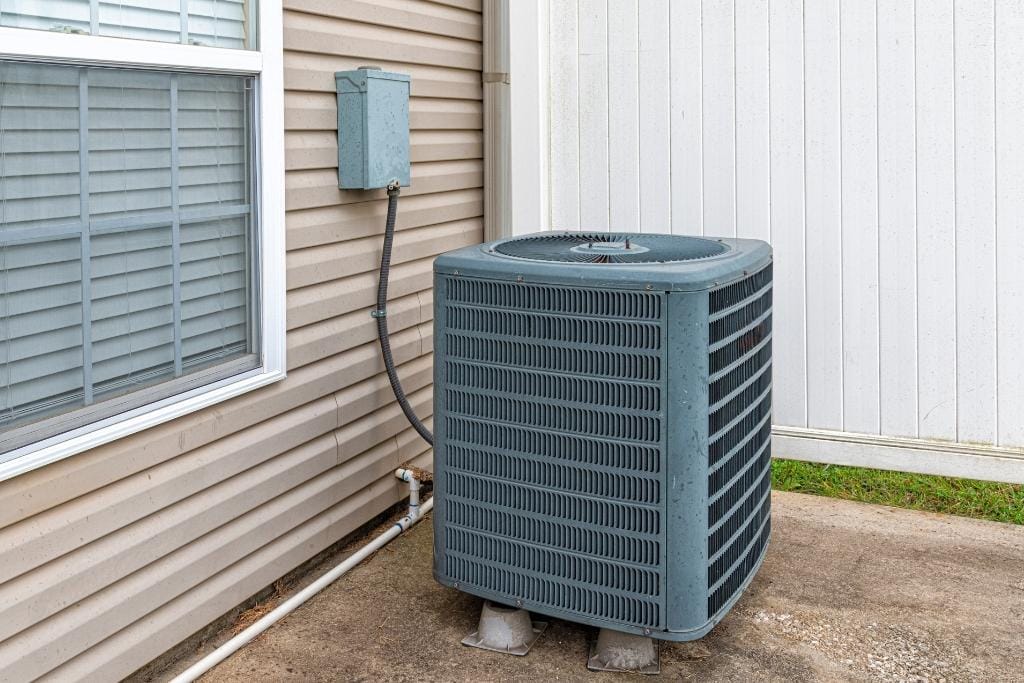It’s critical to have a properly functioning HVAC system here in Sacramento because during the summer months we frequently hit triple-digit temperatures.
If you’ve ever had to go several days or even weeks with a broken HVAC system in 100-degree heat, you know how miserable the inside of your home can be.
It literally feels like an oven.
That extreme heat makes it difficult to function and almost impossible to fall asleep.
Fortunately, Sacramento doesn’t get that cold during the winter.
However, it would be nice to have a properly functioning HVAC system when the temperature drops.
HVAC systems can be expensive to repair and replace, which is why you must get several price quotes before making decisions.
Since the HVAC industry has its fair share of unethical repair companies, you must do your due diligence to reduce the chances of getting ripped off.
Most homeowners have no clue about their HVAC system.
This makes it tricky when it comes to comparing quotes and knowing what to look for.
You must understand a few fundamentals before you can confidently have an idea of which HVAC system to choose for your home.
Today, you’ll discover seven fundamentals that you need to know about before getting quotes from HVAC companies.
Let’s dive in…
1)) Size Matters
Your first order of business is to consider the unit size needed for properly heating and cooling your home.
One way to determine the HVAC size you need is to utilize a method called the Manual J Load Calculation, which is used by techs to determine how much heating or cooling capacity a home need.
This method can be a little confusing and complex.
Another option is to take measurements of your home or room and provide them to a HVAC salesperson to get recommendations.
Or you could simply make an appointment with a few local HVAC companies here in Sacramento and have them perform the Manual J Load Calculation.
Going through this process may seem like overkill, but the more knowledgeable you are before meeting with HVAC techs, the more educated you’ll be.
This can help you make better purchasing decisions and reduce you chances of getting ripped off.
2)) Energy Efficiency
Check whether the HVAC model is energy efficient, and what its SEER rating is, because it’s important to choose a unit that can reduce your utility bills.
Seer Defined: Stands for "Seasonal Energy Efficiency Ratio" and is simply the ratio of cooling output of an AC unit during the cooling season which is divided by the energy it consumes in watt-hours.
An energy efficient HVAC unit can provide your home with comfort for years, while keeping your energy bills reduced.
With the advancement of HVAC technology, there’s no reason not to invest in a system that can properly heat and cool your home for less cost.
3)) Rebates
Find out whether the new system makes you eligible for any tax credits or rebates when you buy and have it installed.
Be certain to contact your utility company or visit their website to see if they offer any rebates for the installation of new HVAC systems.
Pro Tip: Ask the HVAC tech for the proper paperwork that will be required by your utility company to give you the rebate. This typically consist of the equipment SPEC Sheets, which includes the Name of the HVAC company, Make, Model, and Serial Number.
As a consumer, you should always be interested in HVAC units that could potentially save you thousands of dollars in utility bills while offering the best performance for many years to come.
4)) Warranty
You should ask the salesperson or tech about the equipment warranty that is offered, both by the HVAC company that will be doing the install and the manufacture of the HVAC unit.
Find out how long the HVAC warranty is valid for, the things that are covered in the warranty and whether that include labor and components.
Pro Tip: Make a list of all the questions you have before speaking with any salesperson or meeting with HVAC technicians. This will make your conversations more productive.
When you ask the right questions, you can get a better idea of the HVAC system that you are considering investing in.
5)) New Technologies
Check whether the system comes with new features and technologies, such as remote-operated components, digital thermostats, upgraded additional accessories, ductless system, etc.
For example, if you live in an older home that has a boiler system and there is a lack of ductwork, you need to know about HVAC options that can accommodate accordingly.
Don’t worry, a good HVAC company can design and implement solutions to accommodate almost any home.
6)) Noise Level
Before investing in any HVAC system, find out how it rates on the noise scale.
There’s nothing worse than dealing with a loud and annoying unit that can disturb your sleep.
Fortunately, HVAC techs can provide you with the dB ratings of outdoor units, which can help you to determine which system produces lower noise output while in operations.
Knowing the dB rating of each unit allows you to compare to see which models are quieter.
7)) Consumer Reviews
Another important factor to consider are the consumer reviews provided on each HVAC system.
HVAC installers and even the manufacturers can be a bit biased.
Which means the best source to trust is the actual users of the equipment.
Consumers usually voice their opinions and will share the aspects they like and don’t like.
Of course, you should invest in an HVAC system that people rave about, who are satisfied with its quality and performance.
No HVAC equipment manufacturer or installation company can satisfy 100% of their customers.
So, if you see some negative reviews, take them with a grain of salt, especially if most of the other reviews are positive or the overall rating is 4-stars and above.
So, don’t invest in an HVAC unit before researching the consumer reviews first.
Conclusion
You just discovered seven things you need to know before getting an HVAC quote.
Since an HVAC system becomes a permanent part of your home, and can be a significant investment, it’s wise to educate yourself on at least the basics.
Knowing the fundamentals prepares you for the conversations you’ll have with salespeople and HVAC techs.
You’ll ask more intelligent probing questions that can help you select the best system based on the size of your home and what you can afford.
This article isn’t the end-all be-all on everything you need to know before getting HVAC quotes, but it does provide you with some critical information that can help you make the best selection.
If you’re in need of either an HVAC repair, replacement, or a whole system install, don’t hesitate to begin getting quotes.
Download Our Free E-book!








